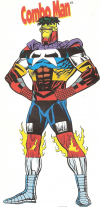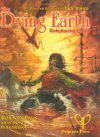Alai
Legendary Pubber
- Joined
- Oct 11, 2021
- Messages
- 468
- Reaction score
- 855
I think there's a lot to like about the supplements. Or most of them, at least. And much to weep bitter tears of regret about too! Of course Chaosium -- who just happen to now own them -- very much disagree, so they'll never see the light of day again.Have you ever seen the original Hero Wars? I’ve never been able to track down a copy of the first printing. I understand that it was full of errors but the information in the supplements always suggested to me it might have been better than subsequent editions.
HW itself is indeed a slightly different configuration of the previously described dog's dinner. Broadly speaking it has the most of any of the editions attempts at crunchy and Glorantha-specific bolt-ons. Few of them successful, IMO. For example there were things called "Edges" that didn't appear in convention previews, or the playtest... or in HQ1, HQ2, or HQG. There was even circulating at the time (I don't recall whether it was ever officially published) a grand cosmological table of resistances. Need to beat up (or become) Orlanth? Or become one with the infinite? Then we had numbers! (Or zero-significant-figure ballparks for the numbers, at least.) Interesting, yes. But about eight feet away from the core of the design, and not at all integrated with it.
But in theory that might have been a way to go, as I mentioned previously. Whereas HQ2 very much went the other way, looking to be a pure narrative-style generic game. And QuestWorlds That Is Yet To Be, even more thus, being much the same, only much more explicitly toolkitty. I wonder if it's missed its window of opportunity, though.








